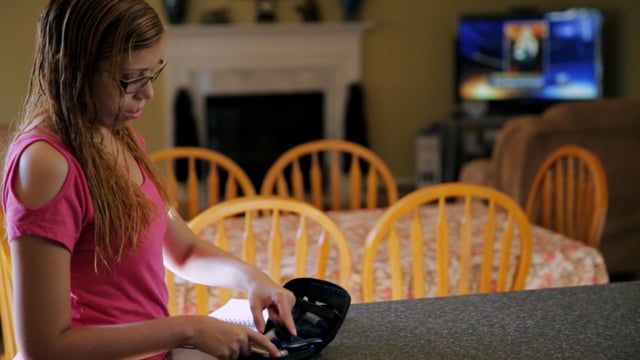Getting Teens Involved in Their Health Care
You do many things to take care of your child’s health — from making appointments and filling prescriptions to talking with the doctor and paying copays. Teaching older kids and teens some basics now will help prepare them to manage their care when they reach adulthood.
As with any new skill, it will take time and practice for them to learn what to do to manage their health. With your guidance, encouragement, and follow-up, they’ll be well on their way.
When Can I Give More Responsibility to My Child?
By the time your child is 12 years old, they’re probably aware of some things you do to manage their health. If not, this is a perfect time to get them involved. Do it gradually. The goal is that by the time they’re 18, they’ll understand the basic responsibilities, and they’ll have some experience doing key tasks.
-

Helping Young Adults Take Responsibility for Medical Care
Ways your child can take a more active role in managing health care.
Use this guide to teach your child what they need to know and when:
For kids around age 12:
- Use simple words to explain any medical conditions that your child has. Ask them to repeat it back to you to be sure they understand.
- Encourage your child to spend time alone with the provider and nurse, without you in the room. This helps them build a trusting relationship and ask questions they might be embarrassed to ask if you’re in the room.
- Teach your child about the medicines they take and why. Tell them if they have any medicine allergies.
- If your child has a chronic condition, show them how to order any medical equipment or supplies they need.
- Spend time together looking at your child's health records. It’s easy to do this on the health care portal. If the doctor doesn’t use a portal, teach your child how they can get copies of their health records.
For teens around age 14, also:
- Tell them about their health history, including medical conditions, hospitalizations, operations, and treatments.
- Share your family medical history, including any diseases that run in the family.
- Give your teen the contact information for all current and past doctors.
- Show them how to fill a prescription and refill a prescription.
- Gather a current list of medicines and dosages.
- Encourage them to ask and answer questions during medical visits.
For teens around age 17, also:
- Help them find a new primary care provider who cares for adults. This could be an internist or a family doctor. Involve your teen in the decision because they’ll need to develop their own relationship with their doctor.
- Explain how to get a referral to see a specialist.
- Discuss how health insurance works. Explain your teen’s coverage and how to contact customer service. Tell them when their coverage will expire and that they’ll need to make a plan to get new coverage then.
Teens who have special health needs or chronic conditions (like asthma or diabetes) may need extra support as they learn to take on new responsibilities for their health. Ask their health care team for advice. When possible, include your teen in the discussions.
Sharing your knowledge and experience about managing health care takes time and patience. It’s worth the effort. By the time your young adult is 18, they’ll have a strong foundation to take care of themselves into adulthood.
